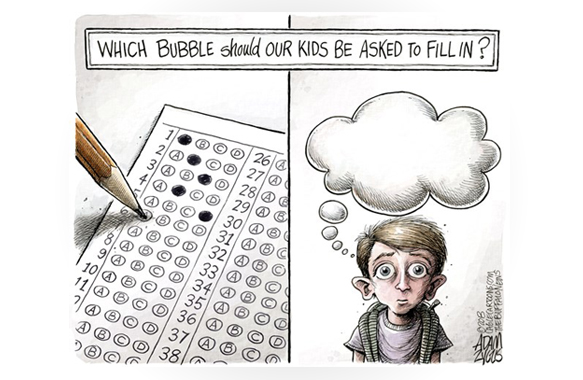Blackmon: Testing robs students of real learning opportunities

You can’t have your cake and eat it, too.
When it comes to college and career readiness, that old saying should be, “You can’t keep all your tests and still produce thinking graduates.” I get so sick of this determination to measure everything by tests, then complain that the rote learning necessary to do well on the tests doesn’t translate into working knowledge in the real world.
For young people to be truly college- or career-ready, they have to be able to analyze information, integrate it with prior knowledge and apply it in different ways. For example, I took two years of Latin and two years of German in high school. The combination of those two languages helps me figure out what words mean, and how different usages take different forms. I can often decipher words in other languages just because of my high school experience.
Exposure to literature and reading can have a similar impact. Working through “Atlas Shrugged” or “The Invisible Man” with a teacher can help students understand a great deal about culture and economics, to ask and answer “what if?” questions and be able to apply those skills to real people and real situations.
“Close reading,” one of the very worst concepts of the Common Core standards and related standardized tests, is the antithesis of reading for a deeper understanding of human nature or how people relate to one another in different circumstances. In close reading, students, beginning in elementary schools, are supposed to be able to take a couple of paragraphs, offered with no context or background, and interpret what they mean. They can read and understand the words themselves, but have no idea what to draw from them beyond that. What good is that?
Because they lose so many days to test preparation and test-taking, there is even less time available for teachers to try to help their students develop their own questions and answers, to discuss how a story might have ended differently if one character had made a different choice. Those are the applicable skills that make students ready to take on jobs and higher education, not just being able to regurgitate information.
I am sick to death of these demands for college and career readiness, including terrible policies of grading schools based on test scores, insisting a principal’s Blackmon: Testing robs students of real learning opportunities | Online Athens:
